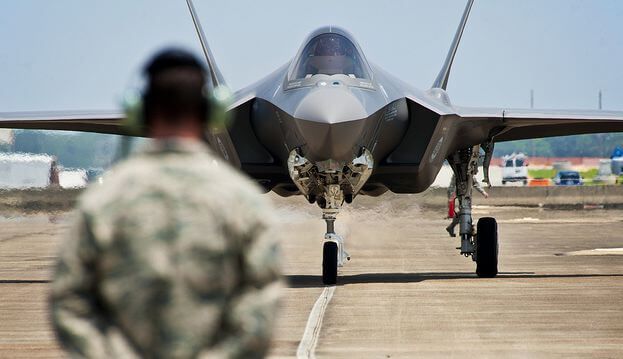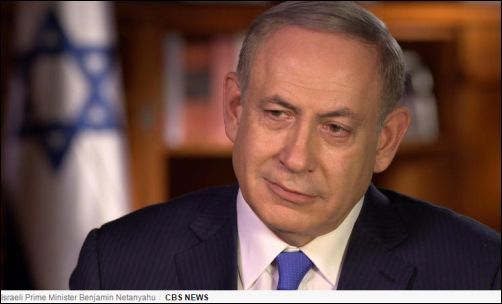Today’s Top Stories
1. Prime Minister Netanyahu appeared on CBS’s 60 Minutes. The in-depth interview focused on Netanyahu’s optimism for the future, expectations for US/Israel relations in the age of President Trump, and the possibility of unwinding the JCPOA, commonly known as the “Iran Nuclear Deal.”
2. World leaders have been condemning the terror attack in Istanbul, Turkey that killed 38 people and wounded scores of others on Saturday. A Kurdish militant group called the Kurdish Freedom Falcons has claimed responsibility for the twin bombings. The group is listed as a terror organization by the EU though not by the United States. The US defense secretary Ash Carter as well as Israeli Prime Minister Benjamin Netanyahu were among the world leaders to express condolences to the victims and to condemn the violence. Both the United States and Israel specifically referred to the attack as “terrorism.” Ever since a reconciliation agreement last October, Turkey and Israel have been returning to a state of normal diplomatic relations.
Join the fight for Israel’s fair coverage in the news
3. A Congressional bill intended to clarify the American definition of “anti-Semitism” was passed unanimously by the Senate, but did not make it through the House of Representatives before the Congressional session ended for the Christmas recess, according to the Times of Israel. The bill’s sponsors likely will reintroduce a version of the bill in 2017. Tracking language from the international definition of anti-Semitism which has already been agreed to by most Western countries (including the United States), the bill outlines when criticism of Israel crosses into anti-Semitism, citing the “three D’s” first advanced by Natan Sharansky: demonization, double standards and delegitimization. Critics of the bill have complained that it limits free speech in a manner that violates the First Amendment, however HonestReporting debunked that misrepresentation of the American Constitution last week, in response to two opinion pieces published in the LA Times.
4. The online publication New Matilda criticizes Israel for the incarceration of Palestinian minors, but avoids the uncomfortable truth: that minors are carrying out dangerous and sometimes deadly terror attacks against innocent Israelis.
Israel and the Palestinians
• Jeruslam Mayor Nir Barkat hopes that Donald Trump will follow through on his promise to move the US embassy from Tel Aviv to Jerusalem. The New York Times explores Barkat’s thinking on the topic.
• A 7-man Hamas terror cell operating out of Tzurif and Hebron that was planning to carry out a shooting and kidnapping attack in Israel, has been arrested in a joint operation between the Shin Bet, the IDF and the Israel Border Police.
Mideast Matters
• American made F35 fighter jets are due to arrive in Israel as shown in this CNN video, which also gives a brief history of Israeli air power. Israel is the first country outside of the United States to take delivery of the one hundred million dollar jet. Air superiority plays an important role in maintaining Israel’s safety in the face of threats from Hezbollah, the various players in Syria and other regional forces, and the F35 is a manifestation of America’s commitment to that air superiority.

• The Independent published a video about an Israeli man Moti Kahana, who founded a charity called Amaliah, to help Syrian children access to Israeli hospitals. The civil war in Syria has created oppressive medical conditions, and even though Syria considers Israel to be an “enemy state,” Israel has nonetheless allowed thousands of individuals to cross the border in order to access medical care in Israeli hospitals.
Around the World
• There seems to be quite a lot of work on defining anti-Semitism these days: Britain will be adopting an international definition of anti-Semitism in efforts to fight hate crimes and incitement targeting Jews which have been on the rise this past year, in countries throughout Europe and the UK. British Prime Minister Theresa May said “it means there will be one definition of anti-Semitism – in essence, language or behavior that displays hatred towards Jews because they are Jews – and anyone guilty of that will be called out on it.” Lack of a clear and legally binding definition of anti-Semitism makes it difficult to prosecute such offenses when they occur. Meanwhile, a Jewish education project has launched a provocatively named, “Rent-a-Jew” project in Germany, to educate and ultimately to combat, anti-Semitism.
• Concerned about being too reliant on Russian gas supply, Europe is looking to Israel, by way of Greece and Cyprus. Ministers of the three countries met in Jerusalem today, and agreed to push for a pipeline to Europe. Meanwhile, the Greek energy company Energean plans to invest $1b in Israeli gas fields and expects to produce gas from the Tanin and Karish offshore fields by 2020. Does this mean European BDS supporters will turn off their heat and stop cooking their food? Probably not.
Commentary/Analysis
• The battles raging against and around Islamic State are often more complex than they seem. Some of the groups fighting against Islamic State are Shiite militia groups, which has caused some consternation in the United States and other Western defense establishments. At the same time, not all of those groups are dedicated to a violent Shiite expansionist agenda, and many are in fact local to the areas in which they are fighting. To make matters even more complex, there is no shortage of human rights abuses, both by Islamic State, as well as by local militia groups fighting against Islamic State. Commentary Magazine takes a detailed look at the situation…
• Despite 25 years of diplomatic relations, when he visits Israel in January, Indian Prime Minister Narendra Modi will be the first Indian head of government to do so. In the past, India has frequently introduced anti-Israel resolutions at the United Nations, and has misrepresented Israeli self-defense as “genocide,” among a host of other criticisms. This despite the fact that India is subject to a great deal of cross-border Islamic terrorism, and has long cooperated with Israel in many areas of business, agriculture and defense. Yet the Indian government has toned down its reactions in recent years, and relations have become steadily stronger. In a thoughtful analysis piece in the electronic political magazine “OPolitics,” Harsh V. Pant writes that this reevaluation has been based on a realization that India’s largely pro-Arab stance in West Asia has not been adequately rewarded by the Arab world, particularly with respect to the thorny issues India faces vis-à-vis Pakistan and the Kashmire.
He will become the first prime minister of India to visit the country.
• Here’s what else I’m reading today . . .
– Yaakov Katz: Why is the Middle East so disappointed with Obama?
– Prof. Eyal Zisser: The new sheriff in Syria
– Cal Thomas: U.S.-Israel relations on the mend
Featured image: CC BY Jon S with additions by HonestReporting; F-35 CC BY-NC flickr/US Air Force
For more, see yesterday’s Israel Daily News Stream and join the IDNS on Facebook.
Before you comment on this article, please remind yourself of our Comments Policy. Any comments deemed to be in breach of the policy will be removed at the editor’s discretion.



